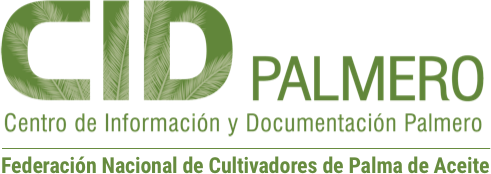| dc.creator | PIPOC 2007 International Palm Oil Congress Palm oil: Empowering change
August 26-30, 2007 :
Kuala Lumpur :
52116. | |
| dc.creator | Chen Change Loy
47110. | |
| dc.creator | Maul, Tomas H. B.
47111. | |
| dc.creator | Weng Kin Lai
47112. | |
| dc.creator | Yuet Yean Lee
47113. | |
| dc.creator | Malaysian Palm Oil Board, MPOB
50178. | |
| dc.date | 2007. | |
| dc.description | Malaysia is blessed with a tropical climate that is conducive for the growth of many commercially viable crops like oil palm, rubber, cocoa, pepper, etc. For over 50 years now, agriculture has played a very significant role in the development of the nation's economy. However, the United Nation's Food and Agriculture Organization (FAO) is predicting global competition between exporters of agricultural commodities will intensify over the next ten years in both developed and developing countries. Stiff competition, combined with higher productivity from the farmers in the developed nations will result in a sharp drop in real prices for many of these agricultural produce. Hence, farmers will have to make strong concerted efforts to improve efficiencies so as to maintain their profit margins. Under the Ninth Malaysia Plan (9MP) agriculture will be revitalized as an engine of growth for the country, with a strong emphasis on the usage of modern technology to improve crop yields, produce better plant species, increase market accessibility, promote precision farming, support good agriculture practices (GAP), etc. Informatics, which basically looks at how information and communication technologies (ICT) process, share and store data as well as information, can help to improve efficiencies and productivity in agriculture. This paper identifies some of the major issues in agriculture and explores how informatics can play a role in overcoming them. | |
| dc.description | Incluye referencias bibliográficas. | |
| dc.description | Malaysia is blessed with a tropical climate that is conducive for the growth of many commercially viable crops like oil palm, rubber, cocoa, pepper, etc. For over 50 years now, agriculture has played a very significant role in the development of the nation's economy. However, the United Nation's Food and Agriculture Organization (FAO) is predicting global competition between exporters of agricultural commodities will intensify over the next ten years in both developed and developing countries. Stiff competition, combined with higher productivity from the farmers in the developed nations will result in a sharp drop in real prices for many of these agricultural produce. Hence, farmers will have to make strong concerted efforts to improve efficiencies so as to maintain their profit margins. Under the Ninth Malaysia Plan (9MP) agriculture will be revitalized as an engine of growth for the country, with a strong emphasis on the usage of modern technology to improve crop yields, produce better plant species, increase market accessibility, promote precision farming, support good agriculture practices (GAP), etc. Informatics, which basically looks at how information and communication technologies (ICT) process, share and store data as well as information, can help to improve efficiencies and productivity in agriculture. This paper identifies some of the major issues in agriculture and explores how informatics can play a role in overcoming them. | |
| dc.language | ng | |
| dc.publisher | Kuala Lumpur : MPOB, | |
| dc.subject | Palma de aceite | |
| dc.title | Informatics in Agriculture: issues and opportunities. | |
| dc.type | text | |


